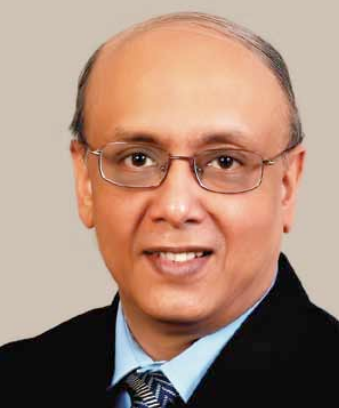
 Dr Sujit Chatterjee, CEO, Dr L H Hiranandani Hospital, shares his thoughts on how India can reach the goal of universal healthcare
Dr Sujit Chatterjee, CEO, Dr L H Hiranandani Hospital, shares his thoughts on how India can reach the goal of universal healthcare
What is your take on the Indian healthcare sector? How do you rate Indian healthcare when it comes to providing healthcare to all?
The Indian healthcare sector is considered a sunrise industry. There are various projections which are given by various institutions of how large healthcare sector is in economic terms from hundreds of billion to thousands of billion USD. My take is that it is developing at a rapid pace but the large bandwidth of secondary level of care needs to be focused upon as this is an area of weakness in the Indian healthcare sector. We are unable to provide healthcare for all as there is a huge discrepancy between the doctor patient ration as compared to some of the other developed countries in the world and also in the regional areas. The Government of India needs to be aware that investment in health- care has to be manifold of we are to provide healthcare for all.

What are the IT investments your hospital has made over the years? How do you think ICT is a game changer in the overall hospital operation?
Over the years the hospital has completely revamped the hardware keeping in line with the newer models of computers that keep on coming in. We have invested in large number of servers to enhance the capacity to absorb data, archive data, and retrieve data. Through IT, I think we have been able to achieve large amount of standardisation through picture archival through use of local area network we have been able to transpose results in quick time especially in emergency situation, admission, discharge, procedures are far smoother and inventory at every given level is extremely accurate.
Five challenges faced in the hospital operations
1. Standardisation in healthcare
2. Documentation
3. Electronic Medical Records
4. To fight medical equipment obsolescence
5. Cost control
How did you manage to sail through those challenges?
It is impossible to sail through the challenges. But it is essential to address each challenge. It would require a manual to address all these in detail but it should suffice to say that it requires enormous contribution from the doctors and nurses. Once the results of evidence based practices are available to all they are more amenable to change for the better. Medical professionals of one generation are averse to computerisation and data capture in the electronic format (this is possible due to not having expertise in using the computers or navigating through electronic medical record in quick time) but if they are trained and assisted this problem can be overcome.

What is your take on the term affordable healthcare? What strategy you think can come handy in making the term true for the Indian population?
Healthcare can be made affordable in this country. Government can float schemes which are realistic. There are centres which are able to perform tertiary care operations at low cost and that is because they have sheet volume. I must digress to my favourite topic and that is Insurance. It is the young who should be charged high premium for healthcare and the benefit translated to those who have no income, have retired and dependent on pension. This will help the insurance create enormous corpus, give no claim bonuses and come up with ready scheme which can be promoted across the length and breadth of the country. It is an easy answer but it requires the Pandits sitting in high places to uate.
What are your views on the regulatory issues of healthcare?
My views on the regulatory issues of healthcare are not standardised. There are for eg. archaic laws which we are still focused is the Drugs & Cosmetics Act 1940. Recent version on this has still not seen the light of the day. I think this a case in point would give a fair idea of my views of regulatory issues of healthcare.
Be a part of Elets Collaborative Initiatives. Join Us for Upcoming Events and explore business opportunities. Like us on Facebook , connect with us on LinkedIn and follow us on Twitter , Instagram.












